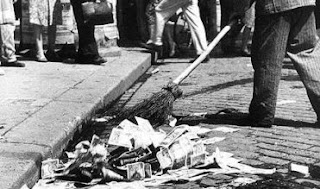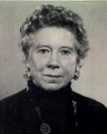Hiroshima: Fifty Years of Debate by Robert Young
Looks at both sides of the Atomic Bombing debate Hiroshima: Fifty Years of Debate is intended for middle and high school students. It is designed to give them both sides of the debate over whether or not the United States should have dropped the atomic bombs on Hiroshima and Nagasaki at the end of World War II. It offers a short re-cap over the issues involved, including a short synposis of the war. It includes fairly comprehensive arguments from both sides and shows pictures of the results of the bombings. I would have only added one thing to the arguments: the United States was unwilling to trust its intelligence estimates of Japan's ability to continue the war since it had bungled on the German front the year before and nearly lost everything in the Battle of the Bulge (there were 75,000 American casualties) - a battle that was considered impossible by Allied intelligence since the German's were supposed to be close to surrender by that point. I will

